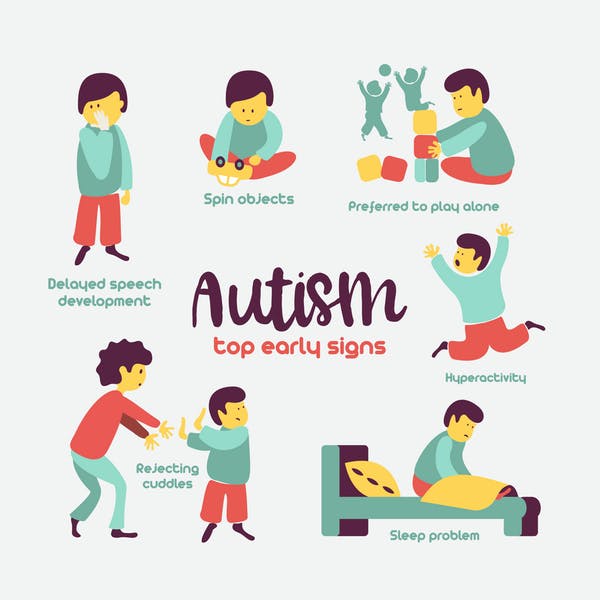2009 was generally a good year for expanding the legal rights of children with special needs and their families. Nationally, the biggest change came from the U.S. Supreme Court.
In the Forest Grove case, the Court ruled that parents can sue their school district for private school tuition reimbursement even if their child never received special education services from the district.
Locally, Pennsylvania and New Jersey joined the growing ranks of states that now require insurance companies to cover services related to the diagnosis and treatment of autism and related disorders.
Delaware does not have such a law yet, but legislators in the First State are debating several important bills affecting the rights of children with special needs. Pennsylvania also changed its regulations governing gifted education.
Forest Grove: A Big Win
When your school district cannot (or will not) appropriately address your child’s special education needs, the law requires the district to pay for your child to be educated elsewhere, even if that means footing the bill for an expensive private school.
In Forest Grove School District v. T.A., the Supreme Court ruled that the right to sue a public school district for tuition reimbursement does not depend on whether the child received special education services before.
Now, parents can sue the public school for tuition reimbursement even if they enrolled their child in private school before the child received any special education services, as long as the child was actually eligible to receive these services and the school district was unable or unwilling to provide them.
You can read the full Forest Grove opinion at www.law.cornell.edu/supct/html/08-305.ZS.html
PA and NJ Autism Insurance Coverage
2009 was a historic year in the Delaware Valley for people with autism and related disorders. Both Pennsylvania and New Jersey joined the growing ranks of states (now 15) that require Medicaid and many private insurers to cover the costs related to the diagnosis and treatment of autism spectrum disorders (ASD).
This includes behavioral therapy, such as Applied Behavioral Analysis (ABA). New Jersey, which has the highest rate of autism in the country (1 in 94 children, according to a recent study), now requires coverage not only for the treatment and diagnosis of autism and other ASDs such as Asperger syndrome and pervasive development disorder, but also other developmental disabilities, such as childhood disintegrative disorder and Rett Syndrome.
Under the new Pennsylvania Autism Insurance Act (ACT 62):
- Many private insurance companies must cover diagnostic assessment and treatment of ASD for children under 21, up to $36,000 per year.
- The Pennsylvania Department of Public Welfare must cover services for those in the Medical Assistance program who do not have private insurance, and for those whose costs exceed $36,000/yr.
- Covered services include: medically necessary prescriptions and blood tests, psychiatrist/psychologist consults and therapy; applied behavioral analysis; speech, occupational and physical therapy.
You can learn more about Pennsylvania’s ACT 62 at www.dpw.state.pa.us/ServicesPrograms/autism/Act62.
Under the New Jersey Autism Bill, beginning in Feb. 2010:
- Insurance companies must provide up to $36,000 per year for medically-necessary behavioral early intervention for all children under 21 with autism, and with other developmental disabilities.
- Covered services include: diagnostic screening, therapeutic services, including any medically-necessary occupational, physical and speech therapy.
You can read the full text of New Jersey’s Autism Bill at www.njleg.state.nj.us/2008/Bills/A2500/2238_I1.htm.
Delaware does not have a comprehensive autism insurance law yet. To learn about efforts to pass such a law in Delaware, visit www.autismvotes.org/Delaware.
New PA Rules for Gifted Ed
2009 was the first full year for Pennsylvania’s revised regulations governing gifted education in the Commonwealth. Some new additions to the rules require school districts to:
- Consider factors other than IQ to determine eligibility for gifted education.
- Provide a single IEP for those children who are both gifted and have a disability.
- Be more proactive informing parents (including those with children in private schools) about the availability of gifted education in the district.
DE Education Reform Push
In Delaware, all eyes are on the hot debate in Dover over several important bills effecting education and children with special needs.
Senate Bill 151 would use federal stimulus dollars to reward schools for excellence in educating vulnerable and at-risk students.
House Bill 139 would extend the state’s Children’s Health Insurance Program (CHIP) program to children whose household income is more than 200 percent of the federal poverty by allowing their parents to purchase this coverage at a significant discount.
House Bill 199 would require insurance carriers to cover developmental screening for infants and toddlers.
DE Hearing Aid Insurance Coverage Law
In Jan. 2009, Delaware’s HB 355 went into effect, benefiting deaf and hearing-impaired children. The new law requires health insurance policies for children as dependents to pay $1,000 per hearing aid per ear every three years, for all children up to age 24.
Joshua M. Kershenbaum, Esq. is a special education attorney with Frankel & Kershenbaum, LLC in Montgomery County, PA. He practices law in PA and NJ. www.davefrankel.com






